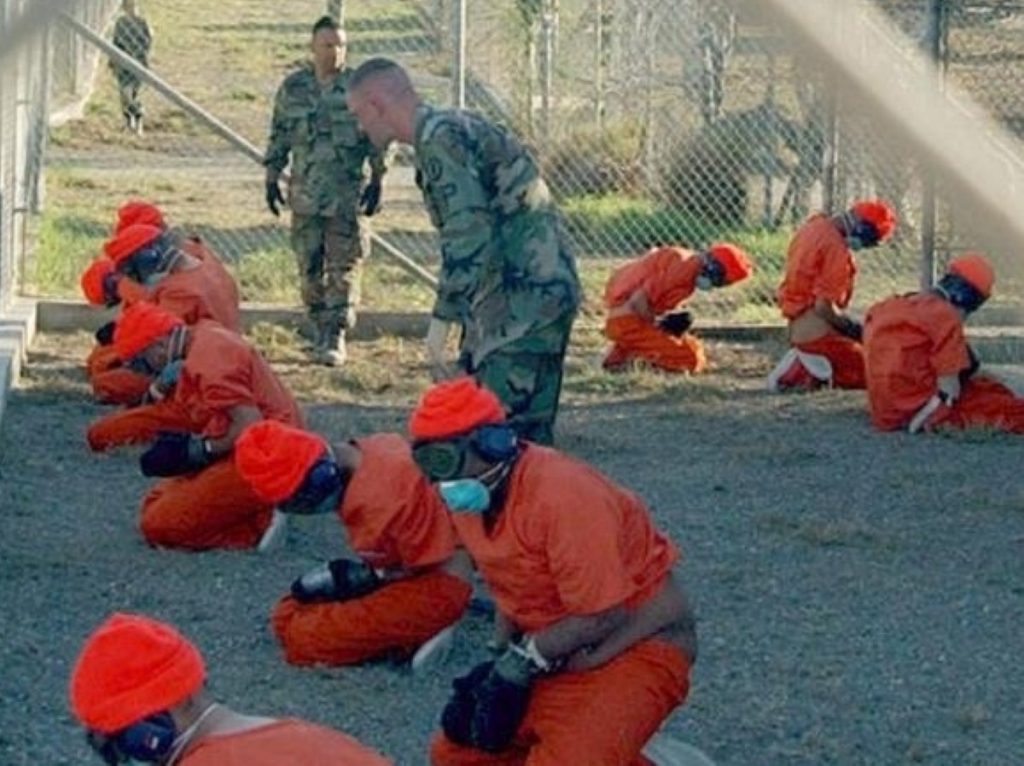Payback at last: Guantanamo detainees to receive compensation
By Ian Dunt
The British victims of Guantanamo Bay will be offered millions of pounds in compensation today, as the government desperately tried to keep their cases out of court.
David Cameron authorised negotiations over payments in July, when the court of appeal announced that confidential documents would have to be released in the court hearings concerning allegations of British complicity in their torture and extraordinary rendition.
That judgement triggered a sudden change of heart in the government, which decided to settle the various disputes with former detainees and establish an independent inquiry into the allegations of torture, chaired by Sir Peter Gibson.


Ken Clarke made an announement on the subject this afternoon in the Commons, confirming that the government had dodged a £50 million bill by backing down from a court battle.
“I can today inform the House that the government has agreed a mediated settlement of the civil damages claims brought by detainees held at Guantanamo Bay,” the justice secretary said.
“The details of that settlement have been made subject to a legally binding confidentiality agreement. They have been reported in confidence to the chairman of the Intelligence and Security Committee, and to the National Audit Office. No admissions of culpability have been made in settling these cases.
“The alternative to any payments made would have been protracted and extremely expensive litigation in an uncertain legal environment in which the government could not be certain that it would be able to defend Departments and the Security and Intelligence Agencies without compromising national security.
“This cost was estimated at approximately £30-50m over 3-5 years and in our view there could have been no inquiry until that ligation had been resolved.”
Some observers argued that those conducting claims against the security services were in a strong position to maximise their compensation because the prime minister announced in July that the inquiry would take place at the end of the year – and only after a financial settlement had been agreed. That public statement radically reduced the government’s negotiating position.
Others questioned whether it was necessary for the settlements to be reached at all. Civil cases do not feature a jury, so they would have been unaffected by evidence emerging from the inquiry. The more likely option is that the decision was taken to avoid evidence about the methods of the security services to emerge in open court.
At the same time, there is concern in human rights circles at the decision to appoint Sir Peter to chair the inquiry. As an intelligence services commissioner already responsible for scrutiny of the services since 2006, analysts do not expect him to suddenly take a different stance to the one he had adopted until now.
Explaining his decision to open talks in the Commons in July, Mr Cameron said: “Our services are paralysed by paperwork as they try to defend themselves in lengthy court cases with uncertain rules. Our reputation as a country that believes in human rights, justice, fairness and the rule of law – indeed, much of what the services exist to protect – risks being tarnished.
“Public confidence is being eroded, with people doubting the ability of our services to protect us and questioning the rules under which they operate. And terrorists and extremists are able to exploit those allegations for their own propaganda.”
Shami Chakrabarti, director of Liberty, said: “It’s not very palatable but there is a price to be paid for lawlessness and torture in freedom’s name.
“There are torture victims who were entitled to expect protection from their country. The government now accepts that torture is never justified and we were all let down – let’s learn all the lessons and move on.”
David Davis, former shadow home secretary and a figurehead for civil liberties on the Tory benches, said: “The government didn’t really have any easy choices here.
“I don’t like the idea of paying out £5m of taxpayers’ money without due process, but at the end of the day the government didn’t really have a choice, so choosing between two not very good options, it’s chosen the least bad, the one that involves paying this money out and then getting into a proper inquiry and actually finding out in full what actually happened.”
The detainees in line for a settlement include Binyam Mohamed, Moazzam Begg, Richard Belmar, Omar Deghayes, Bisher al-Rawi, Martin Mubanga and Jamil el-Banna.









